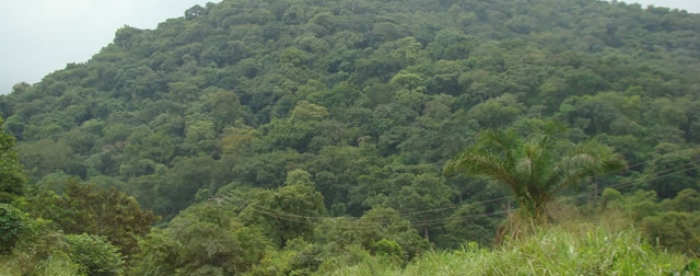Conflicts over forests and trees are the order of the day in Ghana’s high forest zone. This not only adversely affects local people’s livelihoods but also complicates good forest governance. Conflict management should therefore be recognised as a key building block of forest governance, argues Mercy Derkyi in her PhD thesis.
Mercy Derkyi argues that the complexity and dynamics of forest use and management inevitably lead to conflicts. For a proper understanding of these conflicts and the ways in which they can be managed, the researcher used a rich blend of theories on interactive governance, political ecology, conflicts, conflict management and forest-related livelihoods.
Governance challenges
Derkyi investigated conflicts under eight different forest governance regimes. She found that unresolved forest tenure issues – some of which date back to colonial times – impede the proper implementation of national forest policy. Hierarchical governance – a top-down style of state-citizen relationship – prevails despite national policy initiatives which are intended to embrace more participatory approaches. According to Derkyi, traditional authorities play a crucial role in conflict management at the community level. Failure to recognise this role means that opportunities for conflict management are not used to their full potential. The researcher also analysed forest-related judgements and found that legal sanctions are not strictly applied. This, together with low fines for forest offences, suggests that some forest laws in Ghana exist principally on paper. Derkyi calls for more effective cooperation between the Forestry Commission (FC), the Police Service and the Judicial Service to improve forest law enforcement. She also advocates a reform of the judiciary system in a way that recognises the importance of forest offences, while decriminalising the use of forest resources to meet livelihood needs. The feasibility and desirability of giving a prosecution mandate to the FC needs to be explored in more detail.
The need to prevent exclusion
The study demonstrates – and this is of particular relevance for efforts by the national and international community to strengthen forest governance – that current initiatives designed to protect forests more effectively tend to restrict the livelihood options of forest fringe communities. Particular attention is needed to ensure that initiatives, such as the Voluntary Partnership Agreement (VPA) to combat illegal logging under the Forest Law Enforcement Governance and Trade (FLEGT) Action Plan of the European Union and Reducing Emissions from Deforestation and Degradation plus (REDD+), do not lead to further exclusion of forest fringe communities.
Recommendations
Derkyi makes a case for the integration of non-violent conflict management strategies into forest policy and management as a key to ensuring better forest governance. This requires a specialised unit for forest conflict management within the Forestry Commission which could be integrated in the Legal Division at the FC headquarters. In addition, the conflict management capability of frontline staff such as forest guards, district managers and (where applicable) customer service officers should be enhanced, as well as those of community leaders and timber operators. Finally, Derkyi calls for the embracing of interactive forest governance principles as a new governance culture. However, she believes that the most important thing is the simple recognition among all forest actors that conflict management is a key building block of forest governance and effective forest management.
